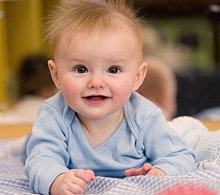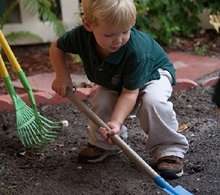 Selecting the right preschool can be a difficult decision. Is your child ready, are you sending your child to the right school? These are common questions & Premier can help! 4 Steps to selecting the right preschool in Omaha, Nebraska.
Selecting the right preschool can be a difficult decision. Is your child ready, are you sending your child to the right school? These are common questions & Premier can help! 4 Steps to selecting the right preschool in Omaha, Nebraska.
- What’s the difference between childcare and preschool?
Child care centers are an option for working parents who need their children to be taken care of during the day; centers accept babies as well as toddlers and are full-time, full-year programs. Preschool refers to an early-childhood educational class for 3- and 4-year-olds. Many offer a part-time schedule as well as full-day care, but only from September to May. Yet the terms are often used interchangeably. A childcare center with experienced, well-trained teachers and stimulating activities offers kids similar advantages to a preschool.
- How important is preschool?
Statistics show that a majority of kids attend at least one year of preschool. According to the National Institute for Early Education Research (NIEER), more than two-thirds of 4-year-olds and more than 40 percent of 3-year-olds were enrolled in a preschool in 2005 nationwide.
“Every child should have some sort of group experience before he starts kindergarten,” says Amy Flynn, director of New York City’s Bank Street Family Center. Music and gymnastics classes are great, but what preschools do that less formal classes don’t is teach kids how to be students. Your child will learn how to raise her hand, take turns, and share the teacher’s attention. What’s more, she’ll learn how to separate from Mommy, who often stays in a music or gym class. All of this makes for an easier transition to kindergarten. “Kindergarten teachers will tell you that the students who are ready to learn are those who come into school with good social and behavior-management skills,” Smith says.
In fact, educators have so recognized the importance of giving kids some form of quality early education that about 40 states now offer state-funded pre-K programs.
- What will my child learn at preschool?
In addition to strengthening socialization skills — how to compromise, be respectful of others, and problem-solve — Premier Academy provides a place where your child can gain a sense of self, explore, play with her peers, and build confidence. We are not your ordinary daycare. “Kids in preschool discover that they are capable and can do things for themselves — from small tasks like pouring their own juice and helping set snack tables to tackling bigger issues like making decisions about how to spend their free time,” says Angela Capone, PhD, senior program manager at Southwest Human Development’s Arizona Institute for Childhood Development, in Phoenix. “Plus, 4- and 5-year-olds have begun asking some wonderful questions about the world around them — what happens to the water after the rain? Do birds play? Quality preschools help children find answers through exploration, experimentation, and conversation.”
- But what about learning his ABCs?
“Young children can certainly learn letters and numbers, but to sit kids down and ‘teach’ them is the wrong way to do it,” says Smith. “They learn best through doing the kinds of activities they find interesting — storytime, talking to their teachers about stars, playing with blocks.” To help kids learn language and strengthen pre-reading skills, for instance, teachers might play rhyming games and let kids tell stories. Keep in mind that for small children, school is all about having fun and acquiring social skills — not achieving academic milestones. “Kids need to be imaginative and to socialize — that’s what fosters creative, well-rounded people. It’s not whether they can read by age 4 or multiply by 5,” says Flynn. An ideal curriculum? Parading around in dress-up clothes, building forts, and being read to.
Premier Academy offers preschool in Omaha, Nebraska. Our West Omaha childcare center has everything your child will need to become ready for the road ahead.

 Working everyday learning into your household tasks can help your preschool children connect the importance of math, reading, geography, and simple reasoning to their own lives.
Working everyday learning into your household tasks can help your preschool children connect the importance of math, reading, geography, and simple reasoning to their own lives.